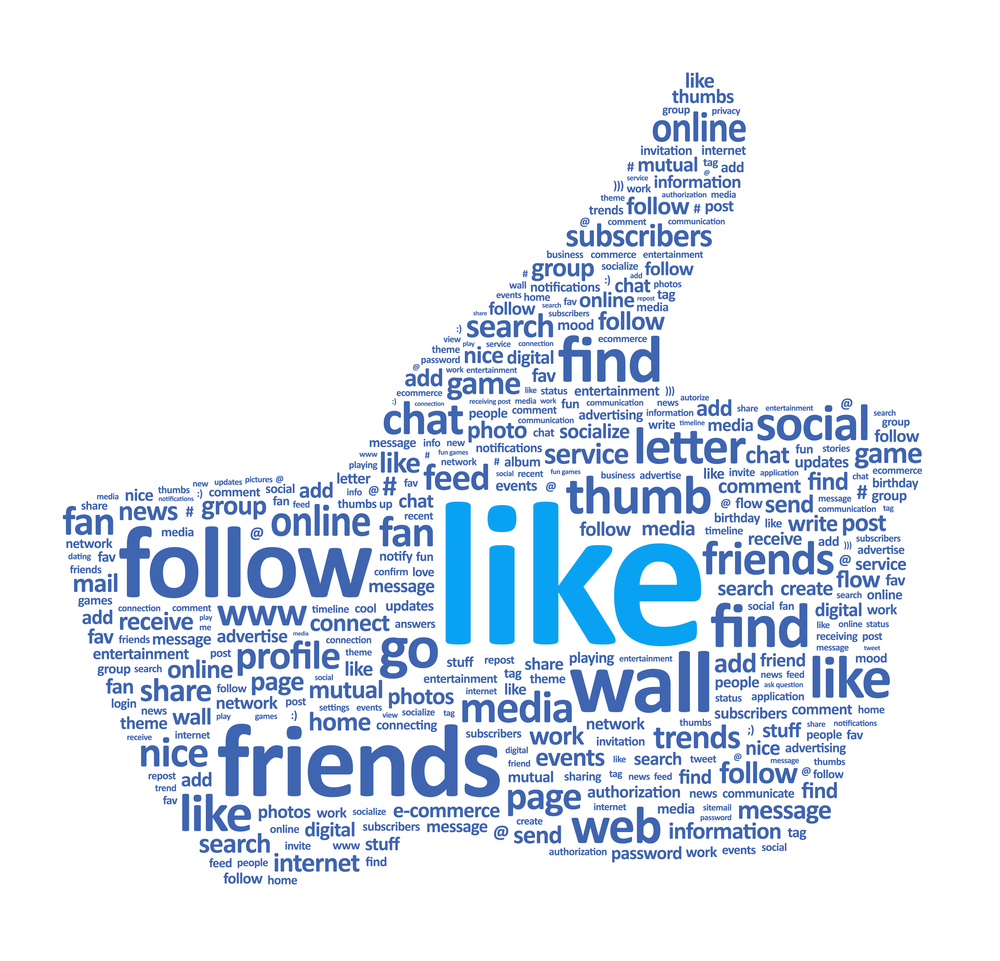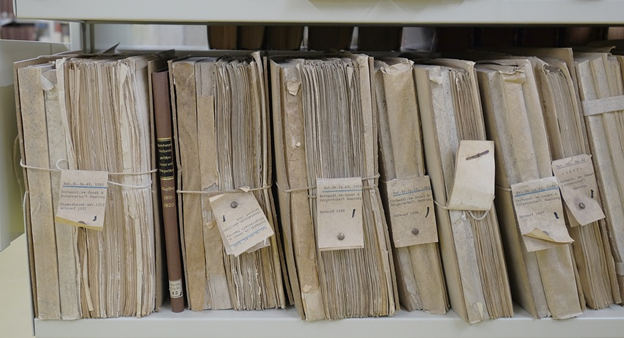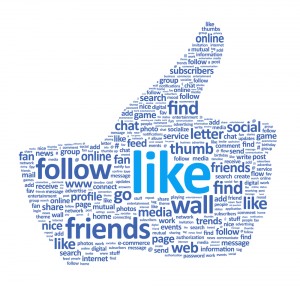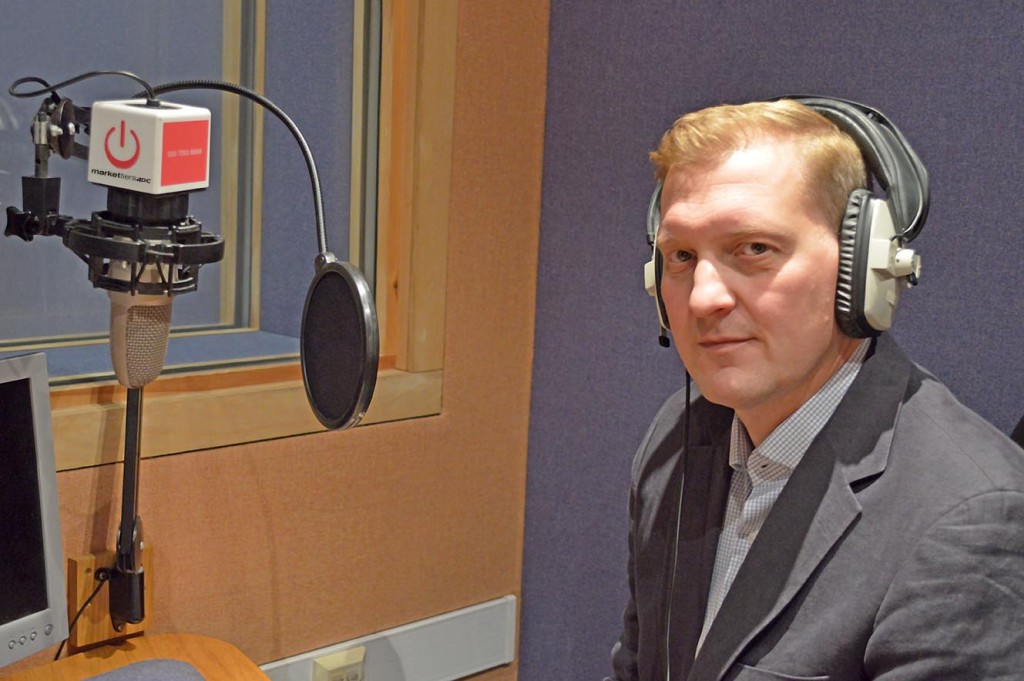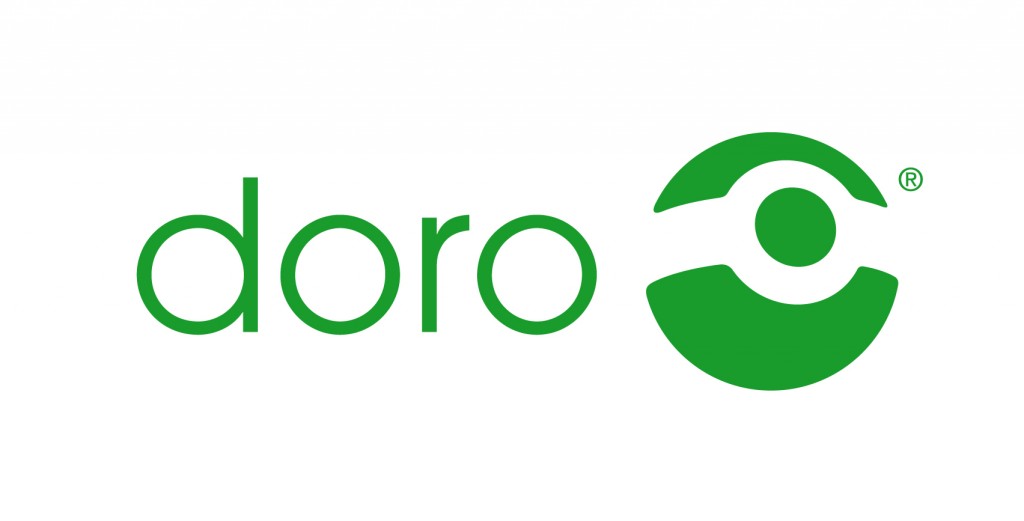Aaron McGinley has seen many people at some point, face social challenges on the internet. People with special needs face an even greater struggle with those often ambiguous digital interactions. He proposes a learning model that supports a basic internet etiquette to help guide us through those murky waters.
Social media
Are You Doing Enough to Protect Your Medical Records?
At first glance, medical records don’t seem like the most important thing to safeguard. Does it matter if someone finds out you had the flu? From a layman’s perspective, most medical data would appear to be uninteresting and practically useless to non-doctors and insurance companies. That line of thinking is a huge mistake.
While your medical records might hold little personal value, they have tremendous value to the right parties. Data from the World Privacy Forum suggests that theft of medical records is on the rise. What you may not realize is that the criminal parties aren’t simply everyday thugs looking to score a free meal. They are organized syndicates working together to harvest millions from unsuspecting victims.
Enormous amounts of information can be taken from medical records, including detailed patient histories, personal identification, and insurance information. All of this can be and is used to generate illicit revenues, defrauding insurance companies and governments alike.
Like other kinds of identity theft, victims can wind up losing it all. But it gets more serious than a stolen credit card: most medical records include enough information about a patient to apply for loans, open credit cards and fully impersonate individuals. The consequences are far more dire than a big credit bill easily reversed by your bank.
So what can you do to protect yourself?
Own and Protect Your Data
Losing your medical data to a breach or theft is damaging not only because of the obvious financial burdens but because there are no remedies to fix any additions to your records. Someone using your medical insurance or impersonating you could permanently alter your records, which might hurt you down the road.
Combatting this means being proactive. Obtain copies of your medical records whenever you can. Store them somewhere safe so that you have a chance to set the record straight if anything ever does happen.
If you’re storing things online, make sure you’ve got a safe connection when you access your storage. It is highly recommended to use a protective service such as a Virtual Private Network (VPN). You can find more information about such services on Secure Thoughts. The key takeaway is that sophisticated criminals have no problem hacking into public WiFi and breaching any devices you use if you don’t use one.
Physical backups are just as important; a personal medical file kept at home in a safe location is perfect for times when you can’t rely on the digital. While using a filing cabinet is often enough, important records are best stored in a fireproof safe just in case.
Stay Current with Your Insurance
Whether you’re using government provided insurance or private coverage, you should always be aware of what your plan has been paying for and when. Not keeping current with your provider(s) could let crooks run amok with your insurance without your knowledge.
Understand that some providers won’t offer regular updates without your explicit request. Fraudsters can always change your mailing and billing addresses to keep you from receiving bills or alerts, so you need to be proactive.
Providers are just as interested in preventing security breaches as you. It costs said companies millions of dollars annually to combat fraudulent charges, and they’re all too willing to assist you in preventing thefts or losses that may end up hurting their business. Contact a representative to find out what kind of protections you’re offered, if any.
Report Suspicious Activity
If anyone knows whether or not you’ve received treatment, it’s you. The same goes for opening new credit accounts; signing an agreement is something you wouldn’t soon forget. Yet such things aren’t so obvious to the companies subject to the fraud.
If you notice something unusual, such as treatment in your name that you never received, report it right away. In cases regarding insurance, you should contact both your provider and the center that rendered care. Credit fraud should be reported to credit bureaus, banks and government authorities as needed.
Communicate With Doctors
Most medical professionals are trained to keep your records safe, but that doesn’t mean they’re doing the best job in the world. Get to know the professionals dealing with your sensitive information and find out if they’re doing everything they can to protect you.
This also goes hand-in-hand with keeping track of whether or not your records are accurate. Even professionals make mistakes, and you’re more apt to notice inaccuracies than they are. Be sure you read through any documentation they provide when you receive treatment, as not all information is protected under privacy laws.
Always ask questions. If there’s anything you’re unsure about in contracts you sign or with the treatment you’re provided, find out what you can do or if someone can clarify details. Most of us have been taught to simply “sign here,” but that can be very dangerous at times. As threatening as record theft can be, medical malpractice can be just as deadly.
Be Careful What You Share
In a professional environment, your medical data is considered private. No one should have access to it except authorized personnel. But those rules don’t apply to the outside. These laws don’t protect the information you put online or in any public place.
Posts on your social media or in messages to friends can be used to get a deeper insight into your medical history. That information can be used by insurers to raise your premiums or even deny coverage in some cases. At worst, said details could be used by criminals to assist in impersonating you.
Look Out for Number One
In times of increasing organized crime, it only makes sense to watch out for yourself. Insurance companies might appear to be looking out for your best interests, but that’s only to prevent liability to themselves. The only one with a truly vested interest in protecting you (other than your family and friends) is you.
So don’t be afraid to get out there and be a part of your safety. Medical records are just one of many avenues criminals can threaten your livelihood; keep in touch with where all your data ends up and you’ll have nothing to worry about.
If you have additional insight about protecting your medical records, feel free to post in the comments. We could all stand to learn a little more.
About the Author: Cassie is a cybersecurity blogger and internet technology expert. She sincerely hopes that you can find security solutions that will keep you and your identity safe for as long as you live.
What is your main social media platform for health, fitness and medical information? Please take our poll
What is your main social media platform for health, fitness and medical information?
A few years back now we ran a short poll about the types of social media people use for health information.
Since then both the healthcare landscape and the social media world have change vastly.
So we thought it might be interesting to revisit the whole area of social media platforms and medicine with a new poll. Hopefully we will be able to identify some of the new ways that people are using the internet. Hopefully this will allow us to communicate better with our readers and the larger health community.
One final thing if you use a platform not mentioned in the poll below please do tell us which one in the comments section below. It would be great if you could share a link as well.
Many thanks in advance for your help!
Healthcare and Social Media – How one hospital is using social media to highlight its surgical breakthroughs and achievements.
Healthcare and Social Media – How one hospital is using social media to highlight its surgical breakthroughs and achievements.
As many of you know by know I’m a massive fan of social media and really believe that it can, and will, revolutionise healthcare.
On Wednesday 28 October, Leicester’s Hospitals will be using social media to showcase the pioneering techniques and hard work undertaken by staff each and every day in the Theatres and Intensive Care Units at the Royal Infirmary, General and Glenfield Hospitals.
The aim of the day is to give the public a behind-the-scenes look into our Theatres to highlight how our staff treat and care for patients who need an operation or intensive care. We will be sharing facts and figures, along with footage of new technology and procedures, information about job opportunities and a closer look at the roles of the staff that patients might meet on their journey through an operating theatre.
Phil Walmsley, Deputy Director of Operations for Theatre Services at Leicester’s Hospitals, said: “Theatres are rarely seen by the public so we want to demystify what goes on and celebrate the excellent work done by our staff 24 hours a day, 7 days a week. We are also keen to show what we have to offer to anyone who wants join our team to make a real improvement to patient care, but also to help explain to the public what happens in what can be scary places.”
The day will start at 8am with Chris Fowkes, Charge Nurse in Theatres, giving a virtual tour of the recently refurbished Theatres Arrival Area at Leicester Royal Infirmary via the Trust’s social media channels, followed by an introduction to a patient being shadowed for the day to explain the patient journey through our hospitals’ theatres.
Throughout the day, videos will be shared revealing pre-surgery ‘fitness tests’, real patient experiences, pioneering surgery, and advanced robotic surgery techniques. Those following the social media day will see behind the scenes in the Clinical Sciences Lab, the Theatre Matron’s Office to find out more about Operating Department Practitioners, and visit the Recovery Theatres where patients who were admitted earlier in the day will be recuperating from their operation.
In the afternoon there will be a chance to find out what it’s like to ‘manage floor control’, how many patients our reception staff see each day, and explore the role of Healthcare Assistants in the department. This will lead on to a video tour of the Cardiothoracic Theatre where behind-the-scenes images from the Cardiac Surgical Services at Glenfield will be showcased.
The social media day will culminate in a live Q&A session on Twitter (@Leic_Hospital) between 5-6pm with Phil Walmsley, Deputy Director of Operations, Dave Kirkbride, Consultant Anaesthetist and Warren Berman, General Manager, giving the public an opportunity to ask any questions about Theatres and Intensive Care Units at Leicester’s Hospitals using #UHLTheatres.
Millions fear end of current healthcare says recent research. How technology might fill the gap.
That’s according to new research released today which saw almost 60% say they are worried the NHS won’t be able to look after them when they get older, with 41% saying budget cuts have them fearing for the future of the health service.
More than 40% surveyed by Doro also say they worry about Britain’s ageing population will mean for health care in years to come.
More than one in five have even more immediate concerns about whether the NHS will even be able to care for their parents or elderly relatives.
And with one in seven worrying they won’t have the money to care for their parents or elderly relatives when the time comes and one in ten concerned they won’t have the time, the study raises questions over just who will look after our ageing population.
Almost a third also worry about how isolated their parents may become when they get older, while around 40% believe technology is contributing to isolation instead of helping them feel more connected and supported.
However, with more than half of respondents saying their elderly relatives now use at least one form of smart technology such as smart phones, social media, or tablets, could the growing number of apps, monitoring services and websites dedicated to health actually be a huge part of the solution to the growing crisis over care of the elderly?
We interview Chris Millington MD of Doro to find out more.
PATIENTTALK.ORG How has the NHS changed since Nye Bevan in terms of operations, objectives and outcomes?
MILLINGTON Well obviously Nye Bevan were given the task of creating a national health service or a
free to use health service so in the early days it was created from gathering together all of the elements that were out there in the private sector. It’s a very different organization now, in fact that’s the most important thing. It is an organization now, it wasn’t then. So it has an operation and it has a very difficult task of trying to provide the best outcomes possible for the nation as a whole and we spend 6% of our GDP and rising dramatically on the cost of providing some immense health care.PATIENTTALK.ORG Is it not outmoded in the new era of both management style and medical technology?
MILLINGTON I think that it will always lag behind the amazing things that happen within technology and also treatments. You think of all the amazing things that have happened to treat things like cancer and the technology that leaps forwards, the NHS has got to provide the services that links those things together so it is always going to be a challenge. To say it is completely outmoded in this era I think is too challenging to the health service and it provides great support. It just needs to engage further with technology.
PATIENTTALK.ORG What are the main reasons for the failure of the NHS in your view?
MILLINGTON The NHS is always going to creak at the seams because of the demands that are placed upon it and the fact that we all know that we are going to have to pay for this health service, this ever increasing health service. To say it’s failed is probably a bit premature, it potentially could if it doesn’t change, if it doesn’t adapt to the future requirements and one of the things that we are looking at in our research is how people feel about these areas, so we know that people are concerned that potentially there might not be an NHS or that there might not be services when they retire and come to need them. And that’s simply because the aging population is expanding at a massive rate and as it does and it becomes 20%, well it is 20% of our population today but it will head towards 30% within 15 – 20 years and that’s a fairly serious number of users that will rely on the NHS to treat their everyday conditions.
PATIENTTALK.ORG So what should replace the NHS and how should it be funded?
MILLINGTON I would rather focus on how we help the NHS to perform better through the use of technology. I think that the politicians need to look at funding levels and things like that rather than an organisation or a person like myself, the most important thing is how we get more out of the current provision of health care in this country and technology can really change the dynamics of the business model that is there today. If 70% of our GP appointments of people over the age of 65 managing everyday conditions like diabetes, technology can remove the vast majority of those everyday appointments by gathering the information and reporting it automatically to GP’s to be able to act upon any changes rather than just simply turning up and delivering their results and doing yet another blood test and then going away having wasted another hour of their time and potentially an hour the GP’s time, so you can really target resources much better by making technology work to identify real issues and therefore free up the time and resource to help the GP’s to do a different job.
PATIENTTALK.ORG Is the strangle hold of GP’s over the NHS the main problem?
MILLINGTON So again I think my previous point is that you can free up the time of the GP’s. I think that if you ask the GP they’d feel like they were being strangled by the immense pressure they are put under to cope with the number of patients that they are seeing every single day. Again technology can play an immense role in freeing up their time to enable them to make better diagnosis and help people that are in need of that help rather than simply just take results and pass them on in a recording process, an administration process.
PATIENTTALK.ORG How exactly can telemedicine improve health care?
MILLINGTON We can talk about telemedicine or mobile health but effectively what you’re doing is using everyday technology so you can use a mobile phone or a tablet to gather information, to report statistics, to healthcare systems, so a computer can quite easily handle a lot of the data and provide the GP the information to better than act upon the changes and ultimately what you’re looking for are changes in people’s health and wellbeing and therefore you can intervene on whether they need to be admitted to a hospital or whether they need some care or some medication. If you wait until that point where there at a GP, it’s already too late, they’re already in need of that medication or healthcare so if you can reduce the number of visits by taking the readings and measurements through technology that makes a massive difference.
PATIENTTALK.ORG – With the end of the current NHS, how will healthcare improve in the UK?
MILLINGTON I don’t think the NHS is going to end, I think the NHS will adapt and evolve and as a nation we’re going to demand that it does that anyway. Technology needs to make a more relevant role within making sure the NHS is targeted at what we need as a nation and I think it will, it needs the energy and effort of politicians and the health care service themselves to want to do this, to recognise that there are more and more people over the age of 65 that need treatment and we have to find a way to resource those treatments and technology is the only way for us to save money and provide those resources and treatments in the future.
PATIENTTALK.ORG Where can people go for more information?
MILLINGTON If you want to know more about our products and services that we offer visit then you can visit dora.com or of course find us on the usual social media sites.
